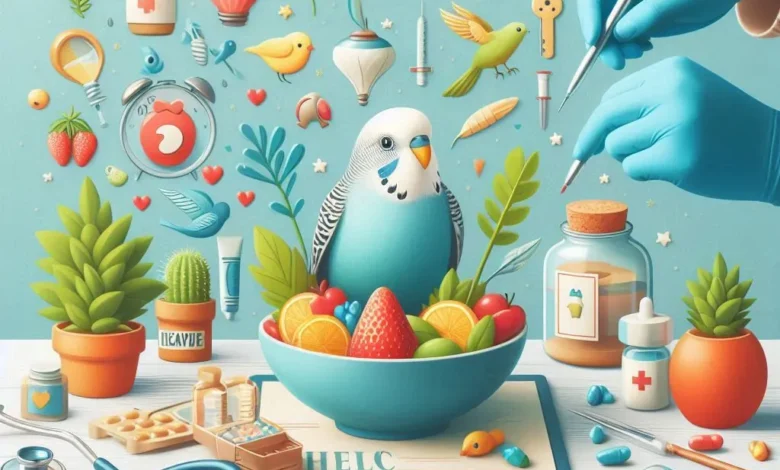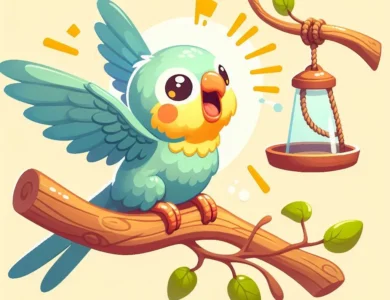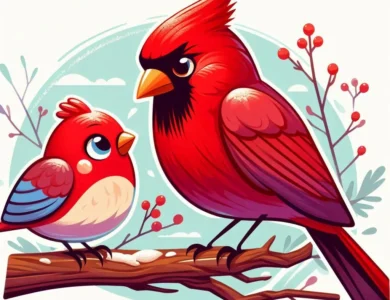How to Keep Birds Healthy: A Comprehensive Guide for Bird Owners

I. Understanding Bird Health
A. Importance of Bird Health
Caring for your bird goes beyond just providing a basic environment; it’s about fostering a long, happy, and fulfilling life for your feathered friend. Here’s why it truly matters:
- Impact on Lifespan: A healthy bird tends to live longer. Just like with any, good health can significantly increase your bird’s life expectancy.
- Quality of Life: A vibrant, active bird is a joy to behold. Ensuring your bird is healthy means it can enjoy its life to the fullest, exploring and engaging with its surroundings.
- Bonding with Owners: Birds are social creatures that thrive on interaction. A healthy bird is generally more sociable and happy, enhancing the bond between you and your pet.
B. Common Health Issues in Birds
Just like any other pet, birds can face health challenges. Being aware can make all the difference:
- Identifying Symptoms of Illness: Common signs of an ill bird include lethargy, changes in eating habits, feather plucking, or unusual vocalizations. Pay close attention to any behavioral changes; they are often the first indicators.
- Preventative Measures: Regular exercise, a balanced diet, and a clean living environment help keep health issues at bay.
- Importance of Regular Health Check-ups: Just as we visit the doctor for regular check-ups, your bird needs the same treatment to catch any health issues early.
C. The Role of Nutrition in Bird Health
What your bird eats is crucial to its overall wellness:
- Basic Nutritional Needs: Most birds require a mix of seeds, fruits, vegetables, and fortified pellets. Ensure that their diet is rich and varied.
- Common Dietary Mistakes: Many bird owners mistakenly think seeds are all their birds need. This can lead to deficiencies.
- Key Nutrients for Different Birds: Different types of birds have different dietary needs. For example, Parakeets thrive on a mix of seeds and veggies, while larger birds like Cockatoos require more diverse options.
II. Creating a Healthy Environment
A. Ideal Cage Conditions
Your bird’s cage is its home; let’s make it a great one:
- Appropriate Size and Space: Bigger is always better! Ensure your cage allows your bird to move around comfortably.
- Cage Materials and Setup: Use non-toxic materials without sharp edges. The layout should include safe spaces for nesting and resting.
- Importance of Safe Perches and Toys: Offer various types and textures of perches and toys to keep your bird entertained and physically active.
B. Cleanliness and Hygiene
A clean bird is a happy bird:
- Regular Cleaning Routines: Develop a routine to keep your bird’s cage clean. Spot clean daily and do a deep clean weekly.
- Safe Cleaning Products: Use bird-safe cleaners. Common household cleaners often contain chemicals that can be harmful.
- Managing Waste and Odors: Replace bedding regularly and use natural deodorizers like baking soda to keep the environment fresh.
C. Environmental Enrichment
A stimulating environment prevents boredom and stress:
- Types of Toys and Engagement Activities: Rotate toys frequently to keep things exciting. Consider puzzle toys, swings, and ladders.
- The Role of Social Interaction: Birds are social beings; spend quality time interacting with your bird to enrich its life.
- Stimulating Natural Behaviors: Hide food, create foraging opportunities, and allow your bird to exhibit natural behaviors like climbing and nesting.
III. Establishing a Balanced Diet
A. Types of Bird Food
Not all bird food is created equal, and knowing this can help you choose wisely:
- Seeds vs. Pellets vs. Fresh Foods: Seeds alone don’t provide complete nutrition. A mix of pellets and fresh foods is often recommended.
- Understanding Bird-Specific Diets: Different species have specific dietary requirements. Knowing these can help prevent health issues.
- Supplements and their Necessity: Sometimes, supplements are essential, especially during certain life stages or health issues.
B. Feeding Practices
Creating healthy eating habits for your bird is just as essential:
- Portion Control and Feeding Schedules: Stick to a feeding schedule and adjust portions based on your bird’s size and needs.
- Hydration Importance: Fresh, clean water is a must. Make sure your bird always has access to it.
- Avoiding Toxic Foods: Common foods like chocolate, avocado, and caffeine are dangerous for birds. Know what’s safe!
C. Monitoring Dietary Changes
Just like us, birds may require dietary adjustments throughout their lives:
- Adjusting Diet with Age: As birds age, their nutritional needs can change. Monitor their health and adjust their diet accordingly.
- Signs of Dietary Imbalance: Look for changes like feather loss, weight change, or unusual droppings—these can indicate dietary issues.
- Working with Avian Nutritionists: If in doubt, consult an avian nutritionist regularly to ensure your bird’s diet continues to meet its needs.
IV. Ensuring Regular Veterinary Care
A. Finding an Avian Veterinarian
Your bird’s health is worth it:
- Qualifications to Look For: Seek vets who specialize in avian medicine; they’ll have the knowledge to help your bird thrive.
- Importance of Avian-Specific Knowledge: A vet familiar with birds understands their unique medical needs better.
- Recommendations and Reviews: Ask for referrals and read reviews to find a trustworthy veterinarian.
B. Routine Health Check-ups
Regular visits keep your bird in top shape:
- What to Expect During a Visit: Routine exams may include physical check-ups, weight monitoring, and examining droppings.
- Vaccination and Treatment Protocols: Your vet will advise on essential vaccinations and treatments like parasite prevention.
- Monitoring Weight and General Health: Regular weigh-ins are crucial. Any sudden weight loss or gain can indicate health problems.
C. Emergency Situations
Being prepared is key:
- Identifying Urgent Health Issues: Learn to recognize signs that require immediate veterinary care.
- Preparing for Veterinary Visits: Keep a list of your bird’s symptoms and health history handy for the vet.
- First Aid Basics for Bird Owners: Familiarize yourself with basic first aid techniques. Knowing what to do in emergencies can save lives.
V. Understanding Behavioral Health
A. Stress and Its Impact
Keeping your bird calm and happy is crucial:
- Identifying Signs of Stress: Symptoms like feather plucking and aggression can signal stress, so pay attention to your bird’s behavior.
- Common Stress Triggers in Birds: Major life changes, loud noises, or even new pets can cause stress.
- Tips for Reducing Stress: Create a quiet, safe space for your bird. Consistent routines can also help.
B. Training for Healthy Behaviors
Training not only helps with behavior but strengthens your bond:
- Positive Reinforcement Techniques: Reward good behavior with treats or praise—this nurtures a trusting relationship.
- Importance of Socialization: Introducing your bird to new environments and people enriches its life.
- Setting a Routine: Birds thrive on routines. Regular interactions and feeding times help them feel secure.
C. Recognizing Behavioral Issues
Sometimes problems can arise:
- Common Behavioral Problems: Issues like biting, screaming, or self-mutilation can occur. Identifying triggers is essential.
- Seeking Professional Help: If behaviors don’t improve, it may be wise to consult an avian behaviorist.
- Understanding Bird Communication: Learn your bird’s body language and vocalizations to better understand its needs.
Conclusion
Building a healthy and happy life for your bird involves ongoing education and commitment. In caring for your feathered friend, know that you are doing a wonderful thing. By creating healthy habits in terms of diet, environment, and care, you’re supporting your bird’s wellbeing significantly.
Always remember: An educated bird owner is a fantastic bird owner!
FAQs
What are the signs that my bird is healthy?
Healthy birds are active, have bright, clear eyes, and show interest in their surroundings.
How often should I take my bird to the vet?
Regular check-ups are recommended once a year—more often for older birds or those with health issues.
Can I feed my bird human food?
Sometimes! But stick to safe options. Always research before introducing anything new.
What is the best diet for my specific type of bird?
Refer to a reputable avian guide or consult your vet for bird-specific nutritional advice.
How can I tell if my bird is stressed?
Look for signs like feather plucking, excessive vocalization, or changes in eating and sleeping habits.




